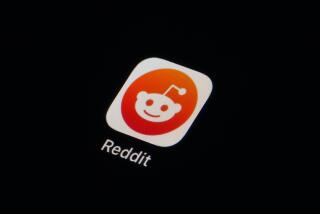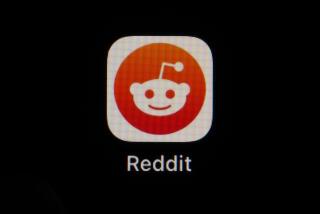Groupon files for IPO as high as $750 million
Many investors probably did a double take when they got their first public peek at Groupon Inc.’s finances.
The Chicago-based daily deals company, which filed Thursday to go public, reported in its prospectus that it generated $645 million in revenue in the first quarter of this year, an amount almost equal to its $713 million in revenue for all of 2010.
Those revenue figures were just one measure of Groupon’s staggering growth since its launch in November 2008. But the online coupon juggernaut’s level of profitability is less clear, and this uncertainty may give investors pause as they decide whether Groupon’s initial public offering represents an opportunity to take advantage of crucial trends in the technology sector or misguided exuberance in line with the last dot-com era.
Groupon’s prospectus said it was pursuing an IPO of up to $750 million, although that figure could change. The filing did not say how many shares the company was issuing or give pricing for the stock.
Groupon posted a net loss of $390 million in 2010 and a net loss of $103 million in the first quarter of 2011, excluding acquisitions and expenses related to cashing out early shareholders.
The company also said that it spent $241.5 million in 2010 and $179.9 million in the first quarter of 2011 on “online marketing initiatives relating to subscriber acquisition” and that it expected “operating expenses will increase substantially in the foreseeable future.”
Analysts said running a loss is typical at tech firms, but the numbers do indicate that Groupon’s rapid pace of growth comes at a cost.
“Investors will have questions about the sustainability and defensibility of this business model, the concern being that these 400 Groupon clones will come and gradually eat away at their market share,” said A.B. Mendez, senior research analyst at GreenCrest Capital Management. “What does Groupon have to do to maintain market share?”
The outsize marketing expenses are understandable because Groupon, which is credited as the pioneer of the daily deals realm, needed to make a big investment to develop the young market, said Lou Kerner, an expert on social media and e-commerce at Wedbush Securities.
“This has been a land grab for a long time,” he said. “I think Groupon was the first company that saw this was going to be a massive market and invested heavily to capture as much of it as possible.”
In a letter to potential stockholders included with the filing, co-founder and Chief Executive Andrew Mason said the company had previously “made investments in growth that turned a healthy forecasted quarterly profit into a sizable loss.”
“When we see opportunities to invest in long-term growth, expect that we will pursue them regardless of certain short-term consequences,” Mason wrote.
Although Groupon has an early-mover advantage, it also faces a number of rivals. In addition to a host of overnight upstarts, marquee technology companies such as Google, Facebook and Amazon are offering online deals for local businesses.
“In my view, the big question that investors need to answer is: ‘Can Groupon hold on to its leadership position?’ ” Kerner said. “I think the leader in this market is going to generate more than $20 billion in value, but it’s going to be a hypercompetitive marketplace.”
Despite these reservations, investors have shown significant appetite for IPOs of social media companies. Professional networking site LinkedIn made its public debut last month, with its opening-day closing price giving it a market value of nearly $9 billion, or 37 times its 2010 revenue.
Groupon has been the subject of IPO speculation since last year, when it turned down a multibillion-dollar buyout offer from Google. Facebook, Twitter and social gaming company Zynga are also considered candidates for public offerings.
The LinkedIn IPO might have been a catalyst for Groupon to move ahead with its plans because “you can strike while the iron is hot and ride the momentum of the previous deal,” said Brian Buhr, an IPO strategist at Morningstar.
In its pursuit of growth and revenue opportunities, Groupon has evolved far beyond offering basic daily deals. It has expanded internationally, mostly through acquiring other companies, and formed strategic partnerships with Live Nation and Expedia for discounted tickets and travel offers. The company also launched Groupon Now, a service that delivers real-time deals to subscribers based on their location.
More to Read
Inside the business of entertainment
The Wide Shot brings you news, analysis and insights on everything from streaming wars to production — and what it all means for the future.
You may occasionally receive promotional content from the Los Angeles Times.










